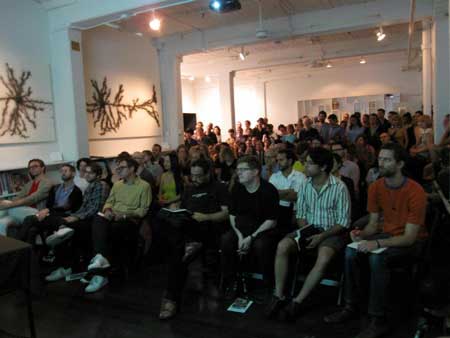A week ago today, while in New York, Carrie and I wandered down to see what was happening at #occupywallstreet and then have a look at the 9/11 memorial. It was not a special day in the movement’s history–no failed attempts to take over the Brooklyn Bridge, no major unions marching down to join the protest. SPECIAL NOTE TO MY BOURGEOIS READERSHIP: want to support the movement? Give them money.
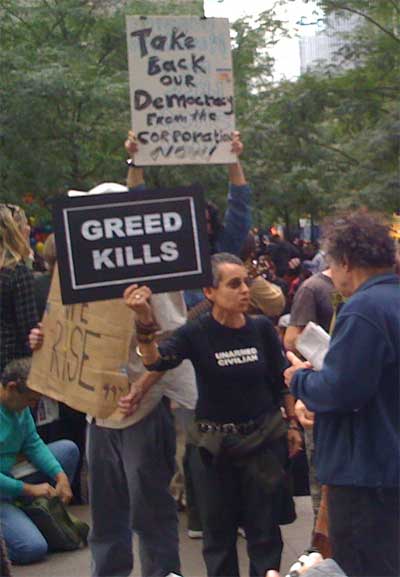
The square was full but not overflowing. At first glance, the people who caught our eyes were the ones you’ve probably heard about, the punks camping out, the people in the drum circle, the hippies setting up microbusiness to sell food or whatever to the other protests (they had some competition from nearby food trucks). But it’s clearly bigger than that. Although I wouldn’t say the crowd was hugely racially diverse, it did seem like there were people from many walks of life there.
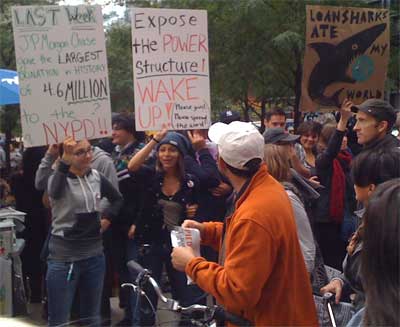
Most of signs and slogans were easy to understand. There was some speechifying but would couldn’t really hear, even with the makeshift PA setup where the crowd repeats each line the speaker says.
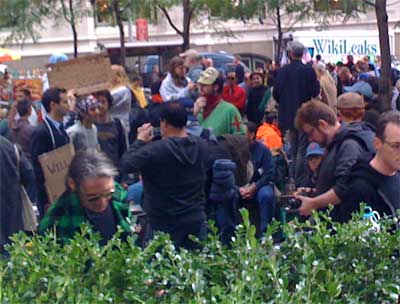
The complaints about a lack of leadership or demands seem to me completely misguided. There are so many obvious things that can be done, from taxing the rich and corporations, to closing loopholes in trading regulations to de-socializing risk (or properly socializing its rewards), to shoring up public works, a real single-payer healthcare system, supporting schools, and on and on.
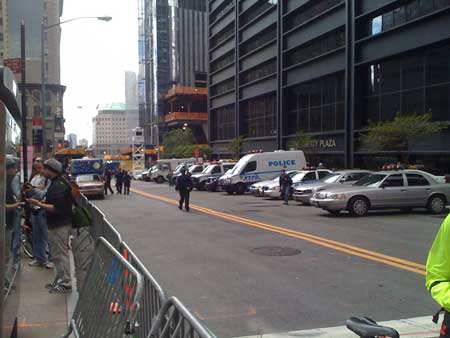
But instead the state’s investment is best illustrated by this line of police cars apparently permanently stationed next to the protesters. The police present seemed jovial and more or less there to direct traffic, but the threat of state violence is always just beneath the surface at these things.
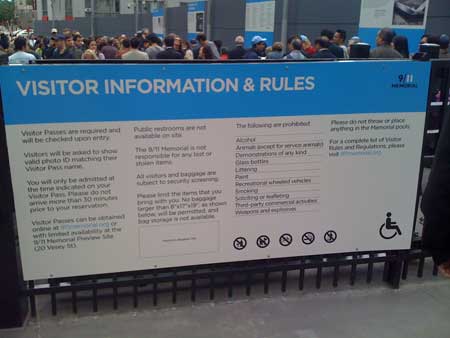
After hanging out there for a little while, we headed down to the 9/11 memorial, to discover that there is wait of over a month to get tickets. As the sign in the photo, the entire thing is incredibly securitized, which is kind of poetic. The U.S. memorializes 9/11 every day by pouring money down the drain of increased security, blowing trillions on wars it can’t win, and instilling fear in its population through various security measures.
Speaking of which, when it was time to head up to our next destination, we discovered that the nearest subway station is completely closed, and large portions of streets were blocked off. I have no idea what the explanation was, except that people couldn’t ride the train directly to the protests.
Later, we would find ourselves in the Lower East Side (I was in search of a bass pedal). On the way, we passed by a restaurant the looked like one of the greatest Epic Culinary Fails in New York City history:

I love poutine, but I’ve never had a good serving of it outside Quebec (the “gourmet” Vancouver version I tried was the equivalent of, well, ordering Mexican food in many parts of Canada).
Finally, per Lisa’s request, a photo of the audience from the Cabinet event that brought me down in the first place. The guy in front looking at his notebook appeared to be drawing all the overhead slides.
